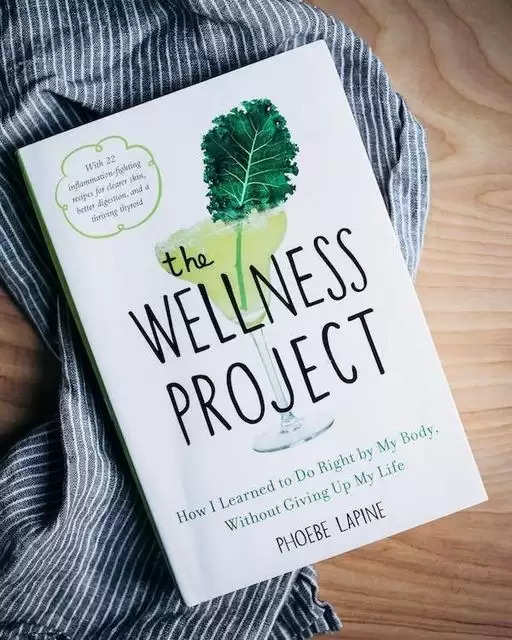7 Lessons from The Wellness Project by Phoebe Lapine

Phoebe Lapine's The Wellness Project: How I Learned to Do Right by My Body, Without Giving Up My Life offers readers a deeply personal and insightful exploration of the path to holistic wellness. Through her year-long journey, Lapine imparts seven profound lessons that resonate with anyone seeking to improve their health without succumbing to the pressures of perfectionism or fad diets.
1. Holistic Wellness Takes Time
One of the most fundamental lessons from Lapine’s journey is that true wellness is not a quick fix; it’s a gradual process that requires patience and consistency. Many people seek immediate results through extreme diets or intense workout regimens, but Lapine emphasizes that sustainable change takes time. Throughout the book, she illustrates how she gradually incorporated various wellness practices into her life, allowing her body to adjust and respond naturally. This approach highlights the importance of honoring one’s individual needs and understanding that genuine wellness unfolds over time, rather than appearing instantaneously.
2. Personalization is Key
Lapine’s exploration of wellness underscores the importance of personalization. What may work wonders for one person could be ineffective—or even detrimental—for another. She shares her experiences with a variety of diets, routines, and self-care practices, encouraging readers to listen closely to their own bodies. This individualized approach acknowledges that wellness is not a one-size-fits-all concept. Instead, it invites readers to experiment and discover what truly resonates with their unique health needs and lifestyle, fostering a deeper connection to their own well-being.
3. Small Changes Make a Big Difference
Another impactful lesson is the power of small, incremental changes. Throughout her project, Lapine tackles one wellness challenge each month, whether it’s improving sleep, cutting down on sugar, or finding effective stress management techniques. This approach demonstrates that making small adjustments can lead to significant health improvements without feeling overwhelming. By focusing on manageable changes, Lapine reassures readers that progress is achievable and sustainable, which can encourage them to take actionable steps toward their own wellness journeys.
4. Mind-Body Connection
Lapine also delves into the intricate relationship between mental and physical health. Her reflections reveal how emotional well-being profoundly affects physical health. For instance, she discusses how stress and anxiety can manifest as physical ailments, thereby reinforcing the need for a holistic approach to wellness. Recognizing this connection encourages readers to adopt practices that support both mental and physical health, such as mindfulness, meditation, and regular exercise, creating a more balanced and integrated approach to well-being.
5. Mindful Eating
Lapine’s journey emphasizes the significance of mindful eating—being aware of not just what we eat, but how it affects our bodies. By documenting her experiences with dietary changes, such as eliminating gluten and refined sugar, she showcases how food choices can influence energy levels, mood, and overall health. This focus on mindfulness encourages readers to develop a healthier relationship with food, fostering a deeper understanding of how nutrition impacts their well-being.
6. Self-Care is Not Selfish
The book powerfully challenges the notion that self-care is indulgent or selfish. Lapine argues that prioritizing one’s own wellness is essential for long-term health and happiness. Through her narrative, she illustrates that self-care is about balance—not perfection. It’s about honoring your body’s needs, which ultimately allows you to show up more fully in other areas of your life. This lesson serves as a reminder that investing time and energy in oneself is not just permissible; it’s vital.
7. Perfection is Not the Goal
Finally, Lapine emphasizes that perfection is an unrealistic and unhelpful goal in the pursuit of wellness. Instead, she advocates for progress, self-awareness, and self-compassion. Her candid reflections on her successes and setbacks offer a refreshing perspective that resonates with anyone who has struggled with the pressures of achieving an idealized version of health. By embracing the journey rather than fixating on the destination, readers can cultivate a healthier mindset around wellness.
In conclusion, The Wellness Project invites readers to adopt a compassionate and personalized approach to wellness. Lapine’s lessons emphasize the importance of small, sustainable changes and encourage a balanced integration of self-care into everyday life. Her journey is a powerful testament to the idea that wellness is not about perfection; it’s about progress, self-discovery, and nurturing a harmonious relationship with our bodies and minds.

Book: https://amzn.to/4gKPcRW
--
-- Thanks For Reading --
You Might Also Like: 7 lessons from Better Than Before: Mastering the Habits of Our Everyday Lives by Gretchen Rubin
